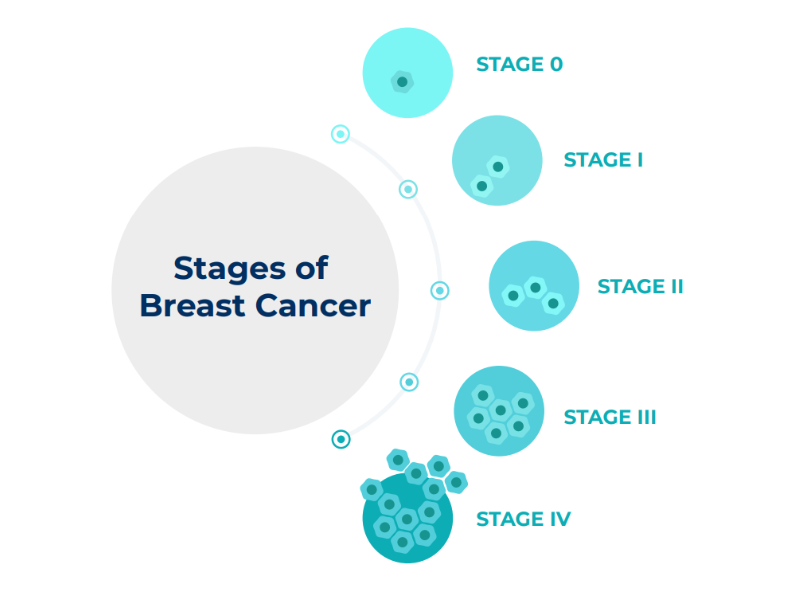Our promise to you is the clearest diagnosis possible.
This starts by referring you to our radiology team who will conduct a diagnostic mammogram with ultrasound. Beyond that, we may also conduct an MRI to ensure we are getting all the information we need.
The information that we gather from your imaging will help us provide you with all possible treatment options. We are committed to doing everything we can to help you reach a clear diagnosis and treatment path.

We’re here to help you ask the right questions.
A breast cancer diagnosis can have a broader impact on your life.
We know this may be overwhelming, but we’ll help prepare you to ask the right questions and provide you with the best answers– no matter what lies ahead.
Understanding the stage of your breast cancer can help you decide your next steps.
Classifying your breast cancer by stage helps us understand how many cancer cells there are in your body. It also helps us determine the best treatment options for you.
The tests and procedures used to stage your breast cancer will include physical exams, pathology reports, cancer cell tests, blood tests, and imaging tests.
The stages of breast cancer are indicated using Roman numerals that span from 0 to IV.
Stage 0 is used when there are abnormal cells in the tissue, but they have not spread to other areas of the breast
Stages I, II and III are used when the cancer has started to spread into other parts of the breast
Stage IV is used when the cancer has spread beyond the breast to other parts of the body

We will discuss your treatment options together.
The treatments we recommend will depend on the specific kind of breast cancer you have and if it has spread.
Your doctor will provide more details for each of these treatments and will let you know what is best for you, it is common for a combination of these treatments to be used.
Treatment options include:
Your breast cancer care program

Our care goes beyond treatment, including financial support
We understand that dealing with invoices and insurance is a burden that you may not be able to take on right now. That’s why we will make it easier to understand invoices, file insurance claims, and help you find the financial support you need throughout your care.
Whenever you need help, please know that we are here.
We are here for you no matter where you are in your breast cancer journey.
Whether you have just received your diagnosis, are in the middle of treatment, or have completed your course of treatment, there are many ways we can still support you and help you feel and do better. Please call us to make an appointment today.
Call us today for second opinions and referrals

